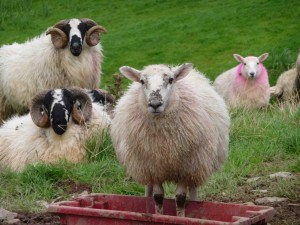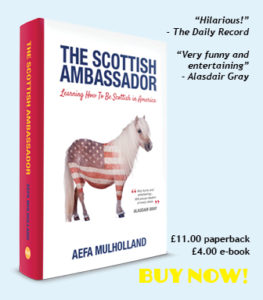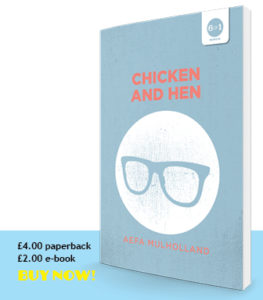 My Texan Gaelic teacher tells me it is fun to get Dwelly’s Scottish Gaelic dictionary and look up words for sheep. She is right! There are words for a small or inferior lamb, draft gimmer, crooked hogg and other sheepish types I’ve never heard of. For a short tailed-ram, pet ewe-hogg and three-winter ewe. You can even narrow your conversational sheep requirements down to a female after weaning but before her first shearing, a yearling of a wether after its first Halloween or a barren twinter if not put to ram. And then you can do the same for cows! And, presumably, pigs! The precision you can achieve in Gaelic really is most impressive. According to my instructor, who has counted, Dwelly’s lists “87 different types of cow”, offering clarification as to whether they’re on their third calf or just had one or whether they’re a sturk, which, I’m informed, is an adolescent heifer. Words for old women are just as extensive, she tells me. I remember Olive, a friend in Glasgow, saying that she’d heard there were dozens of words for “love” in Gaelic; from a word for the love of a friend to one for the love of a wife. Or, my dad suggested, for the love of a friend’s wife. I’m quite sure Dwelly’s has a word for that, too. With its exhaustive ovine, bovine and amorous vocabulary, Gaelic puts Glaswegian to shame, although proportionally we have more insults to other parts of a sentence, which seems a more useful thing in a language spoken in my hometown.
My Texan Gaelic teacher tells me it is fun to get Dwelly’s Scottish Gaelic dictionary and look up words for sheep. She is right! There are words for a small or inferior lamb, draft gimmer, crooked hogg and other sheepish types I’ve never heard of. For a short tailed-ram, pet ewe-hogg and three-winter ewe. You can even narrow your conversational sheep requirements down to a female after weaning but before her first shearing, a yearling of a wether after its first Halloween or a barren twinter if not put to ram. And then you can do the same for cows! And, presumably, pigs! The precision you can achieve in Gaelic really is most impressive. According to my instructor, who has counted, Dwelly’s lists “87 different types of cow”, offering clarification as to whether they’re on their third calf or just had one or whether they’re a sturk, which, I’m informed, is an adolescent heifer. Words for old women are just as extensive, she tells me. I remember Olive, a friend in Glasgow, saying that she’d heard there were dozens of words for “love” in Gaelic; from a word for the love of a friend to one for the love of a wife. Or, my dad suggested, for the love of a friend’s wife. I’m quite sure Dwelly’s has a word for that, too. With its exhaustive ovine, bovine and amorous vocabulary, Gaelic puts Glaswegian to shame, although proportionally we have more insults to other parts of a sentence, which seems a more useful thing in a language spoken in my hometown.





Comments are closed.